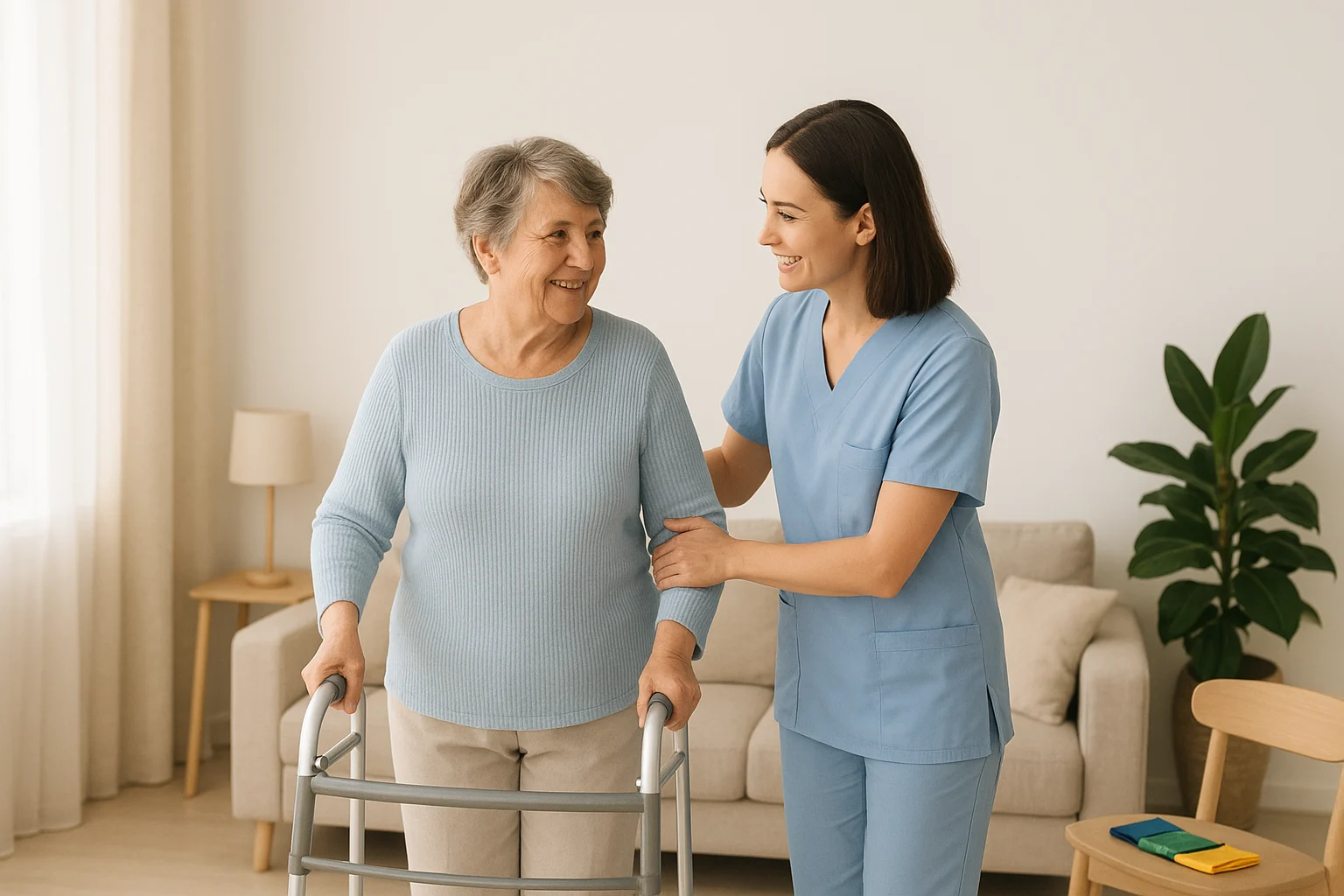

Undergoing joint surgery—whether a hip replacement, knee replacement, or shoulder reconstruction—is a major life event. The weeks afterwards are just as important as the operation itself. For many people, recovery is made easier by the presence of family or close friends. But what if you don’t have someone at home to help?
It’s a common situation. Some patients live alone, others have family overseas or loved ones unable to provide physical support. While it may feel overwhelming, with the right planning and resources you can still recover safely and confidently after joint surgery.
Below, we’ll explore practical strategies for arranging care, transport, and rehabilitation when family support isn’t available.
Preparation is half the battle. Before your surgery date, have open discussions with your surgeon, anaesthetist, and hospital team about your living circumstances. Let them know you’ll be managing recovery on your own—they will often suggest tailored supports.
Checklist before surgery:
Many hospitals also have social workers or discharge planners who can link you with community services, ensuring you’re not left without support.
You won’t be able to drive immediately after joint surgery. Pain medication, reduced mobility, and movement restrictions make driving unsafe. That means arranging transport home from the hospital is essential.
Options to consider:
If ongoing physiotherapy or wound check appointments are required, plan transport for these in advance to avoid missed visits.
Recovering alone means your home environment must work in your favour. Even small adjustments can prevent accidents and give you more independence.
Practical steps:
Occupational therapists can conduct a home assessment before surgery, recommending modifications that suit your specific recovery needs.
Even the most independent person will need some assistance in the first few weeks after joint surgery. Tasks like wound care, meal preparation, and showering can be challenging.
Support options include:
Government programs such as My Aged Care or private health insurers may cover some of these services.
Rehabilitation is the cornerstone of recovery after joint surgery. Missing sessions or failing to keep up with exercises can delay healing and affect long-term outcomes.
Options when recovering alone:
It’s worth discussing these options with your surgeon before discharge so the right referral is in place.
Emotional recovery is just as important as physical healing. Living alone can feel isolating, especially when you’re limited in mobility.
Ways to stay connected:
Recovery is not just about the body—it’s about maintaining a positive mindset too.
Here are some simple but effective strategies to make solo recovery smoother:
Recovering on your own doesn’t mean ignoring warning signs. Contact your healthcare provider or seek urgent care if you notice:
Having a plan for emergencies—such as a neighbour who can be contacted, or keeping a list of important numbers by the phone—provides peace of mind.
Recovering from joint surgery without family support may sound daunting, but it’s entirely possible with the right preparation. By arranging transport, engaging home or community services, and keeping rehabilitation on track, you can recover safely and regain independence.
Your medical team is your greatest ally. Never hesitate to share your concerns—they can guide you towards services and supports you might not know exist.
How long will I need help after joint surgery?
Most patients need support for at least the first 2–3 weeks, depending on the type of surgery. Hip and knee replacements often require longer assistance with mobility and physiotherapy.
Can I recover completely on my own?
Yes, but it requires careful planning. Using community services, arranging professional care, and ensuring home safety are key to recovering independently.
What if I can’t afford private care services?
Speak with your hospital social worker. Many government programs, local councils, and non-profits provide subsidised or free post-surgical support.
When can I start driving again after surgery?
This depends on the type of surgery and your surgeon’s advice. Many patients need to wait 4–6 weeks before resuming driving safely.
Is rehabilitation really necessary?
Yes. Rehabilitation is critical to restoring mobility, strength, and long-term joint function. Skipping physiotherapy can increase the risk of stiffness, weakness, or ongoing pain.